Deep in Israel desert, shimmering glass mountains
YERUHAM (Israel) — Deep in the heart of Israel’s desert, shimmering mountains of glass dominate the landscape.
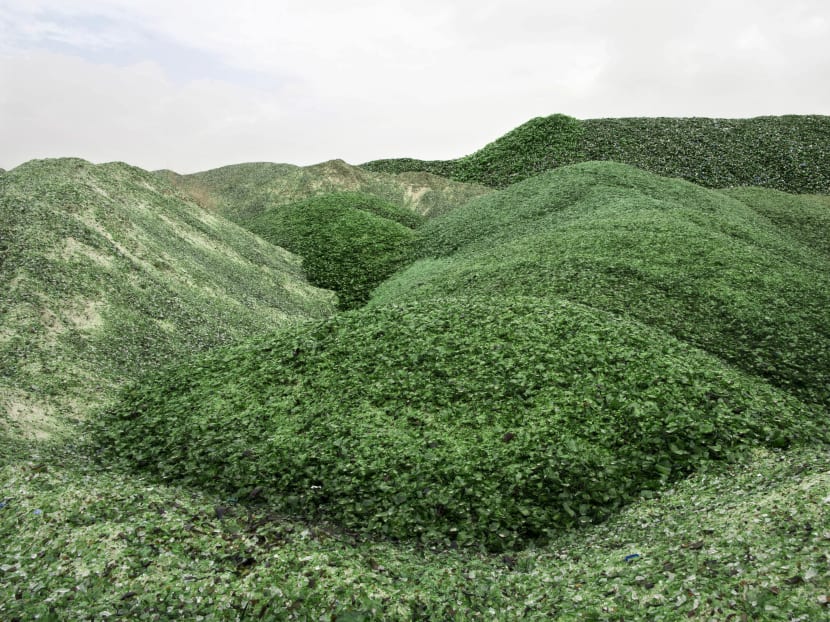
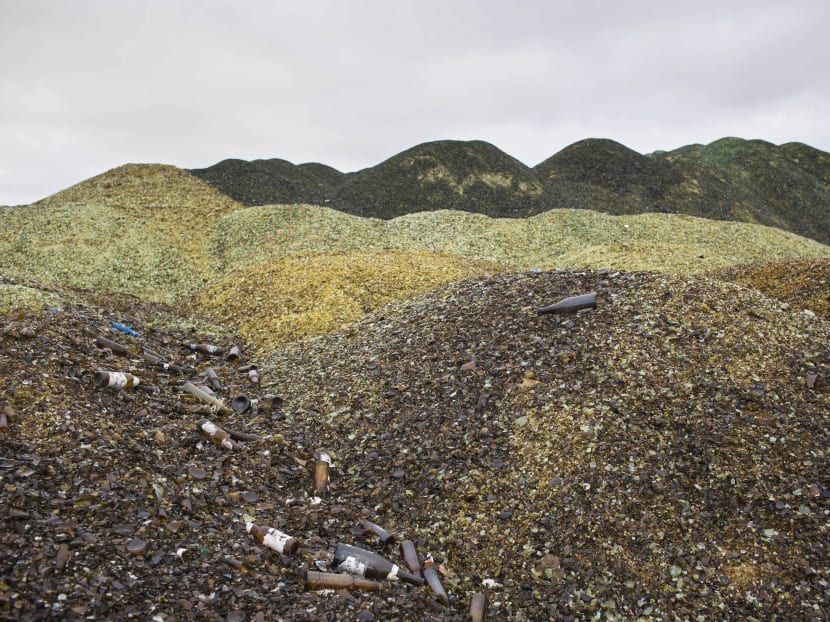
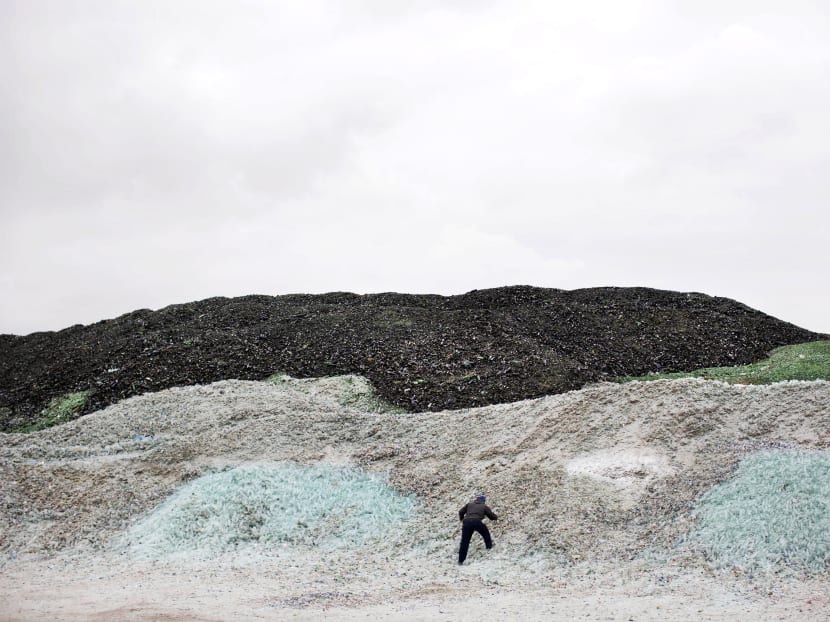
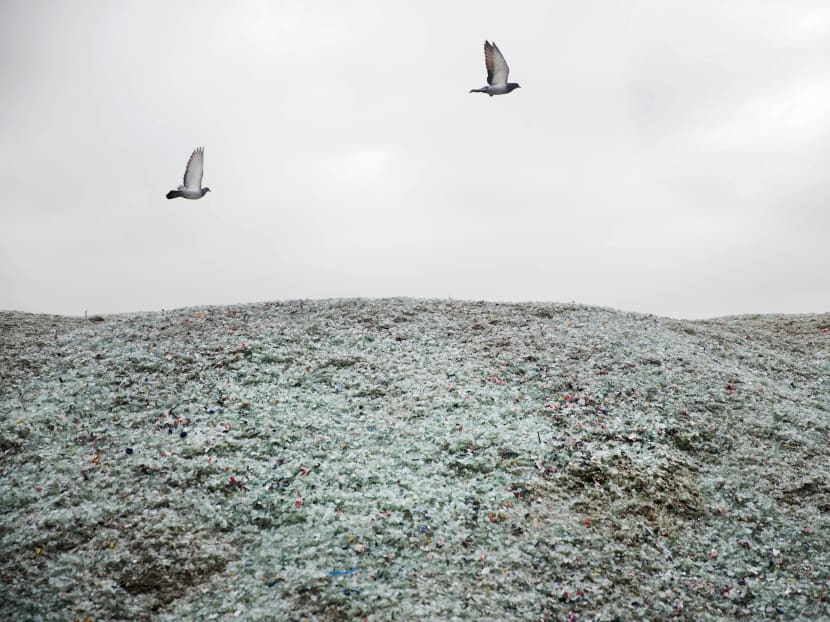
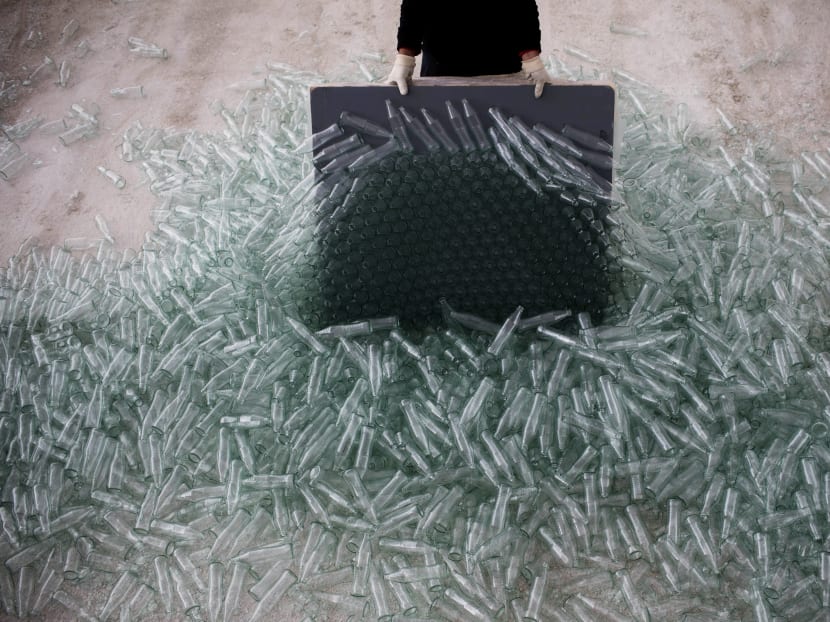
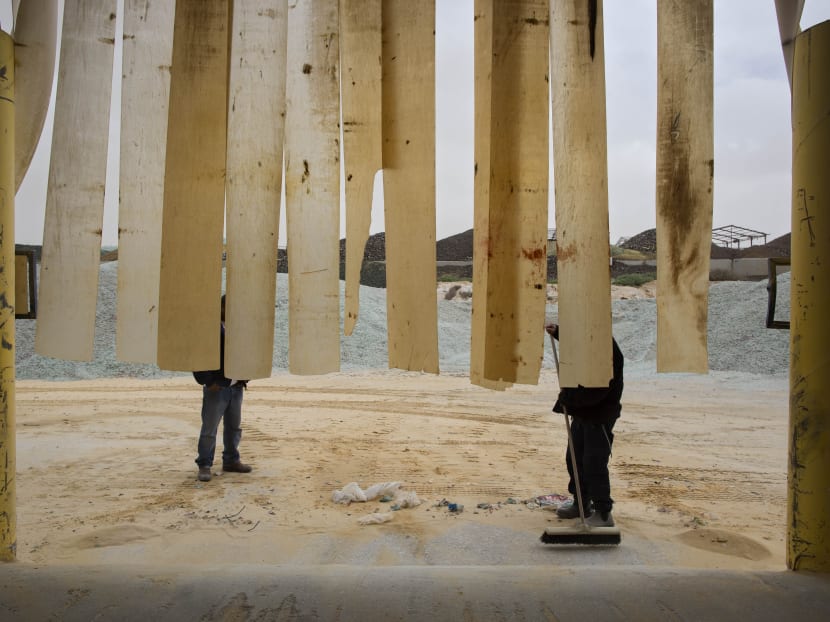
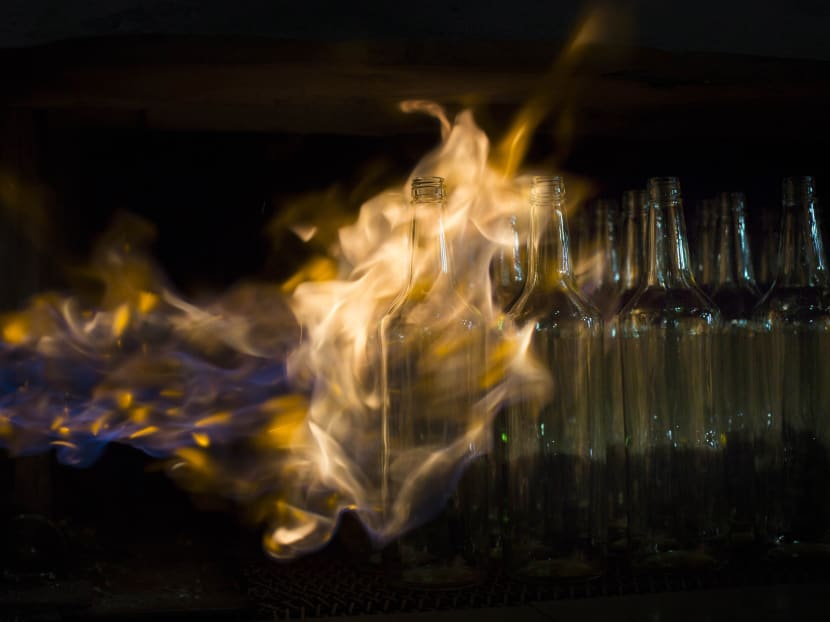
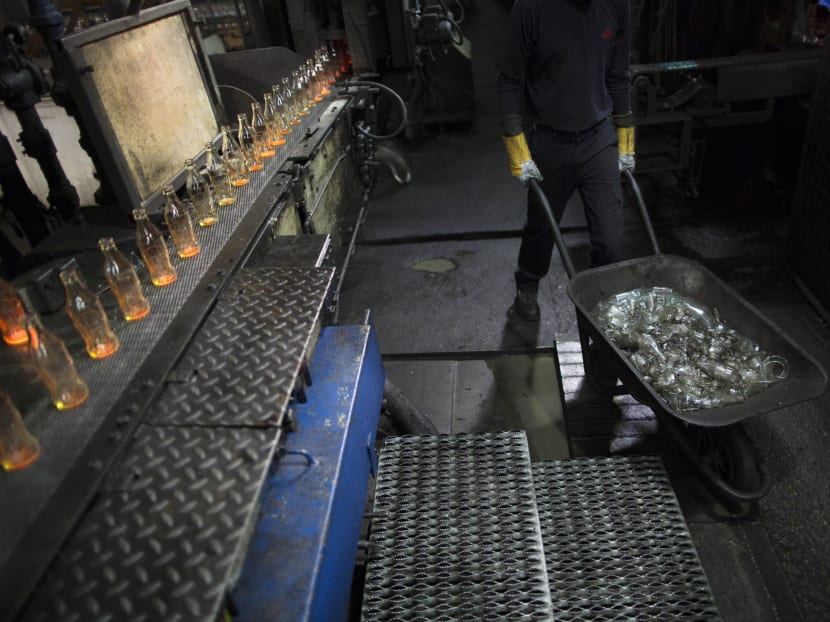
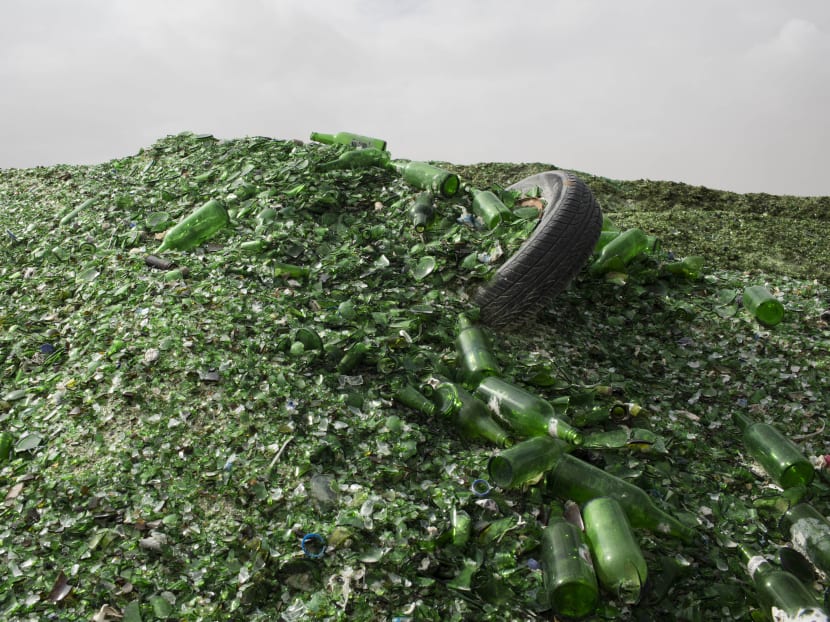
YERUHAM (Israel) — Deep in the heart of Israel’s desert, shimmering mountains of glass dominate the landscape.
Tiny shards, millions of them, are piled into rolling hills of green and brown. They are 15m high and span the length of a few soccer fields.
This is the junkyard at Israel’s only glass container factory, where broken glass awaits a new life.
Phoenicia Glass Works Ltd produces a million bottles and containers a day for beverage giants Coca Cola, Pepsi, and Heineken, as well as Israeli wineries and olive oil companies. Every day, about 300,000 bottles come out of the ovens with defects.
Factory workers grind these rejects into shards and pile them outside. Recycled glass bottles from across the country are sent here and ground up, too. The glass pieces are shovelled into the ovens to be fired into new glass bottles. Sand, the basic ingredient of glass, is hauled in from a nearby desert quarry.
The factory is located in one of Israel’s most remote desert towns. It’s been there for the last 50 years, but has suffered financially. American industrialist and philanthropist for Israeli and Jewish causes Morton Mandel bought the factory a number of years ago to keep it afloat.
About 250 employees keep the factory running 24 hours a day, every day of the year. They even work on Yom Kippur, Judaism’s holiest day, when everything else in the country grinds to a halt. They can’t turn off the ovens, because the molten glass lava will harden and clog them.
Outside the factory, heaps of olive green sit next to mounds of brown, light green, and clear glass. The piles are kept separate by concrete slabs made by a factory next door, which also produces the concrete pieces for Israel’s West Bank separation barrier.
In the monotonous desert sands, the colourful hills are like a surreal nature reserve.
“We are here so much,” said factory employee Oron Haliva, “we hardly notice”. AP






